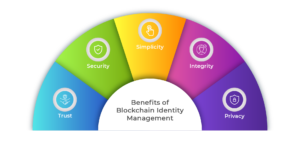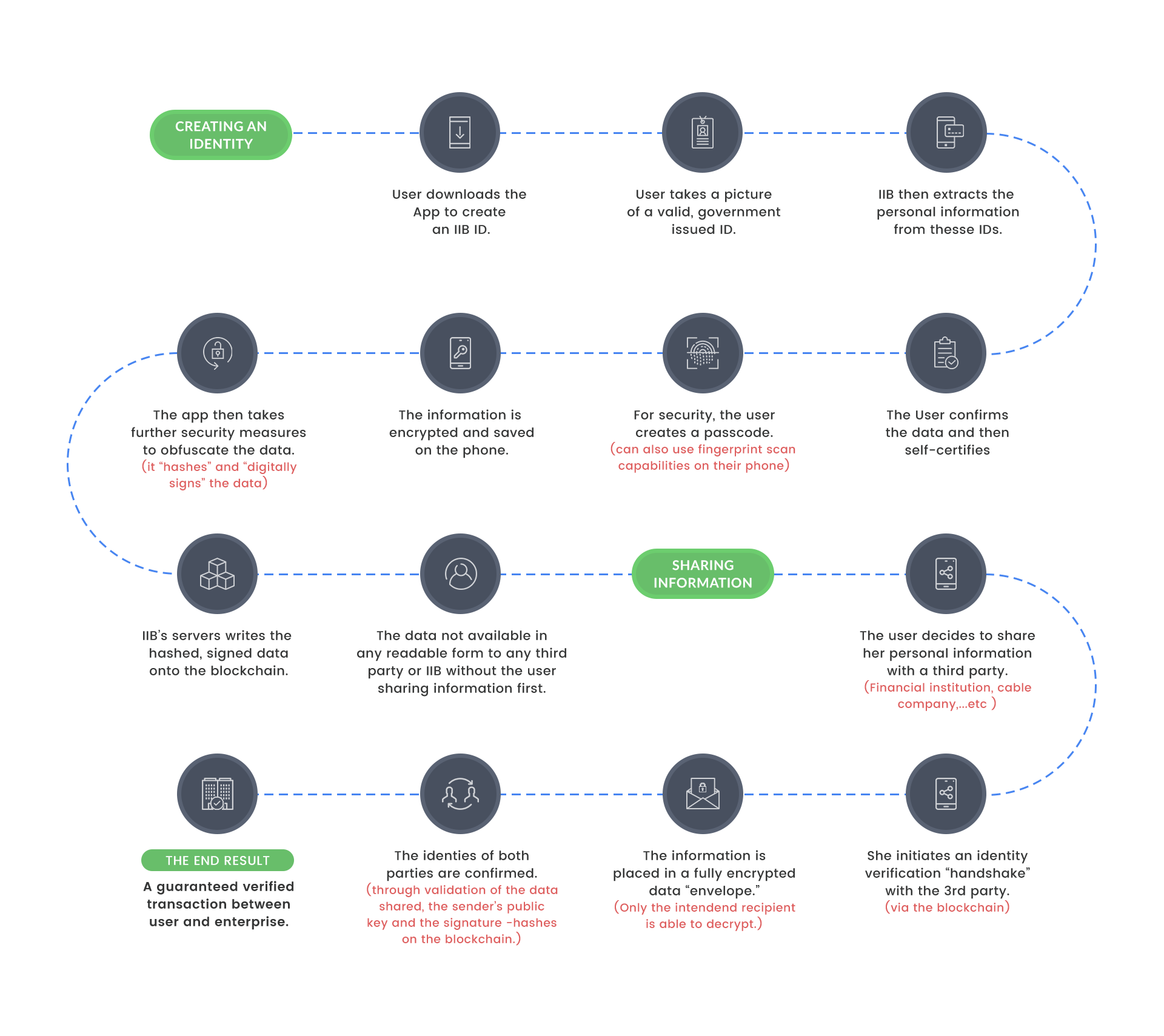

Blockchain identity management system helps to keep personal and business data more safe and secure. Each identity management system involved in a business transaction makes use of relevant user data. Trust is perhaps the most critical component in any business or a transaction between two people or parties.
For instance, if you are purchasing a commodity online, or creating an account in a social media account, you are submitting a lot of personal data to someone. The factor of trust established in such a system is not backed by any assurance. The fallbacks of such a system are evident in mishaps such as the Equifax hack. A hacker gaining access to a major database exposes all the personal information of users. We have an identity management system that each one of us is using today. However, the current online identity management systems are far from being sustainable. A blockchain-based identity management system is the key enabler for billions of users to transact in the digital world.
Digital identity management has always been a concern area for enterprises and government bodies. According to Javelin Strategy, the number of identity theft victims in the US rose to 16.7 million in 2017. The cost of all of that lost data amounts to nearly $17 billion.
Traditional identity management systems are expensive, disjointed and offered considerable hindrance to innovations that enterprises experiment from time to time to improve customer experiences. Customers are forced to supply personal data repeatedly at multiple business and government entities and they have limited control over the utilization of this data. There is a rising demand for using a technology that supports transparent digital identity management. The blockchain is the forerunner today in terms of competitors for the honors.
Blockchain technology offers a reliable decentralized model of distributed trust for digital identity management. It enables consumers to have absolute control over their identity and transparently delegate consent to institutions that request information access. No single entity can cause identity fraud in an identity management system.
To understand that let’s have a look at some of the basics:
Many recent digital identity systems are quite sophisticated, although with a little drawback. Digital identification solutions put on centralised systems are often expensive and may not always produce the expected outcomes. The significant disadvantage of centralised identity management systems is the delegation of control to a single entity. As a result, the advantages of blockchain for identity management are being investigated, with blockchain providing intrinsic user control, trust, and transparency.
Take a look at the below discussed benefits of blockchain based identity management systems:
A distributed ledger stores the metadata needed for communication in blockchain-based systems. As a result, the blockchain network employs consensus protocols to validate the authenticity of data via several nodes. The decentralised structure of blockchain is especially beneficial in the case of digital identities since it minimizes the chances of data breach.
The most noticeable item among blockchain identity management benefits is security. In reality, blockchain technology has an inherent architecture for storing data in an encrypted and immutable form. Furthermore, cryptographic security in the blockchain is another notable feature of blockchain when examining its effectiveness in enhancing the security of identity management systems. Blockchain technology has the potential to improve digital identity security while also keeping it traceable. Furthermore, blockchain-based identity management solutions address issues around password security issues.
Blockchain technology for identity management may potentially result in process optimization for all stakeholders. Identification issuers may profit from the automation of procedures for issuing digital identity, resulting in an efficient reduction of time and human efforts necessary for issuing identity. Identity verifiers can profit from blockchain based identity management sysems by reducing costs and simplifying the client onboarding and data verification processes.Owners of identities can profit from the simplicity of blockchain-based identity management solutions that move away from centralised data administration. Identity owners and users have absolute control over their identity.
Blockchain-based identity solutions allow each identity to be maintained across several nodes in the network. Continuous data reconciliation, regardless of whether data is distributed over peer-to-peer networks, assists in keeping data up to date. Furthermore, the benefits of blockchain identity management highlight the absence of a single point of failure. Hackers may face considerable hurdles in disturbing the integrity of a given data collection if there is no single point of failure.
The critical aspect affected by blockchain in digital identity management would undoubtedly be privacy. Regulators all across the globe are fighting for the protection of individuals’ sensitive and personal information. As a result, blockchain identity management systems that combine digital signatures with blockchain encryption can provide built-in anonymity. Attaching digital signatures to all user transactions assures that they are not susceptible to manipulation.

Related article on What to know before implementing blockchain in your business
By using blockchain technology, we can achieve Self-sovereign identity. Self-sovereign identity is the concept of storing identity data on personal devices and offering permission-controlled access efficiently to agents that request identity validation for any service. It eliminates the need for a centralized data repository for storing identity information.
Let us look at the flowchart showing how a blockchain identity management system work-

The user submits required details like their personal details, any supporting documents and legal collateral, attestations, proof of authenticity, or any relevant information. This information would then be subjected to algorithmic processing to generate a unique identification number that is cryptographically hashed to ensure protection from unauthorized access.
Once the number is generated, the information submitted initially would be erased from the system and only the hashed and signed identification number would be recorded on the blockchain. The user gets the number on their personal device for any future use. They have options to create password-protected access for the number on their device. The users can self-certify their identity or use any other third-party applications to validate any request.
The applications which require the identity of a user can make a request for the same on the identity management system. The blockchain-based systems would be devised to easily integrate with such identity requesting applications. The user will submit the identity upon request from the blockchain system. Both parties have to agree to share the data as well as they have to confirm their identity. Thus the decentralized system can be utilized to manage identity. Thus we can achieve self-sovereign using Blockchain technology.
Related article on How a Blockchain Identity Management System can Prevent Identity Thefts and Frauds.
The next generation of business and citizen-based digital identity management systems will rely on blockchain-based applications for transactions in the future.
[bctt tweet=”Today I learned: The current online Identity Management Systems that we all use today are far away from being sustainable. But, blockchain technology proposes a solution for this by establishing a self-sovereign identity.” username=”accubits”]
Get in touch with us today